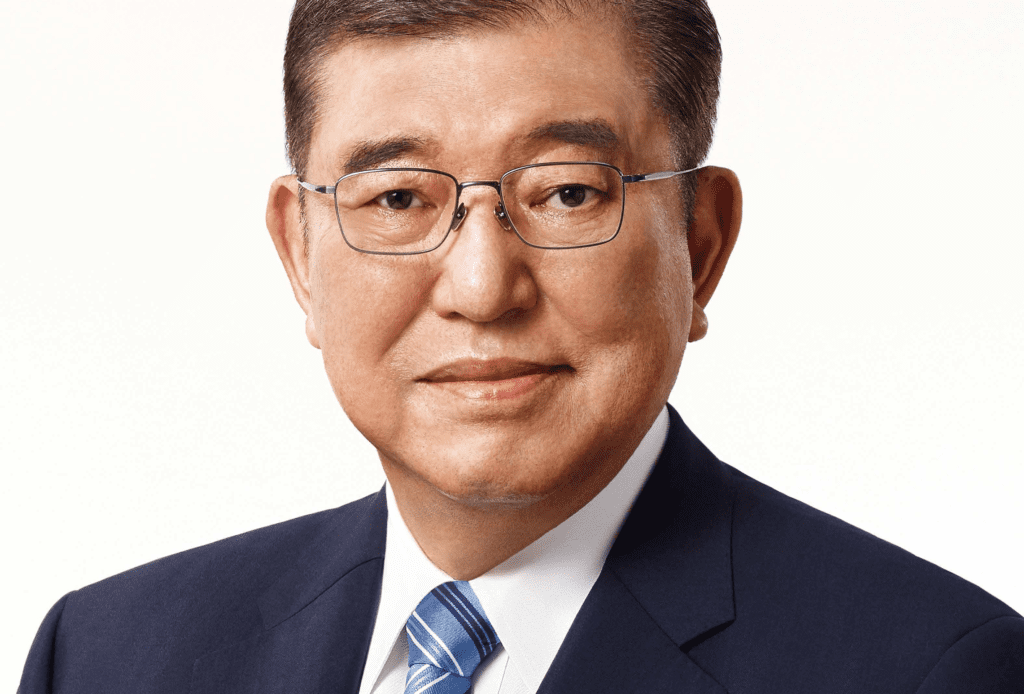U.S. President Donald Trump announced on Friday that Japanese Prime Minister Shigeru Ishiba will visit him next week. Trump expressed his anticipation for the meeting but did not provide specific details, such as the exact date of their discussion.
However, sources familiar with the matter have suggested that Ishiba’s visit will include a summit with Trump, possibly on February 7, in Washington. The main focus of the meeting will be strengthening the alliance between the United States and Japan, particularly in defense and security.

According to government insiders, Ishiba is expected to spend three days in the United States starting Thursday. His visit will be significant as it marks his first in-person summit with Trump since assuming office.
Trump Remembers Shinzo Abe
During his remarks, Trump spoke warmly about Japan but did not mention Ishiba by name. Instead, he recalled his friendship with former Japanese Prime Minister Shinzo Abe.
“Prime Minister Abe was a very close friend of mine. What happened to him was so sad and one of the saddest days,” Trump said.
Abe resigned from his position in 2020 due to health issues. Tragically, he was assassinated during a campaign speech two years later. His death shocked Japan and the world, as he was one of the country’s longest-serving leaders and had built strong diplomatic ties with the United States.
Ishiba’s Visit: A Key Diplomatic Event
Ishiba’s upcoming meeting with Trump will be the second time Trump has met a foreign leader since returning to office for a second, nonconsecutive term on January 20. Prior to meeting Ishiba, Trump is scheduled to hold discussions with Israeli Prime Minister Benjamin Netanyahu on Tuesday at the White House.
The Japanese government has been preparing for Ishiba’s meeting with Trump in recent weeks. As part of these efforts, Japanese Foreign Minister Takeshi Iwaya traveled to Washington to meet with the new U.S. Secretary of State, Marco Rubio, just one day after Trump’s inauguration.
Iwaya and Rubio discussed ways to strengthen the U.S.-Japan alliance and agreed to enhance cooperation in multiple areas, including economic and security partnerships. They also emphasized the need to work closely with other allies, such as South Korea and the Philippines, to address growing challenges in the Indo-Pacific region, particularly China’s increasing influence.
Security Concerns in the Indo-Pacific
The meeting between Ishiba and Trump is expected to focus on security concerns, especially in the Indo-Pacific region. North Korea has continued to conduct ballistic missile tests, raising tensions in the area. Japan has been increasing its defense spending in response to these threats.
During the discussion, Ishiba is likely to explain Japan’s efforts to strengthen its military capabilities and its commitment to regional stability. Japan and the U.S. have long been security partners, and both countries are keen on maintaining a strong alliance to counter potential threats from North Korea and China.
Economic Cooperation Between Japan and the U.S.
Apart from security issues, Ishiba is also expected to highlight Japan’s role in the U.S. economy. Japanese companies have been major investors in the United States, contributing to job creation and economic growth.
One of the key topics could be the recent decision by the U.S. government to block Nippon Steel Corp’s proposed acquisition of United States Steel Corp. Earlier in January, President Joe Biden’s administration rejected the deal, citing concerns over national security and the importance of keeping the iconic American steelmaker under U.S. ownership.
Given Trump’s known opposition to the sale, Ishiba may use the meeting as an opportunity to reassure the U.S. that Japan remains committed to investing in American industries. Over the past five years, Japan has been the largest foreign investor in the United States, and Ishiba may emphasize this point to strengthen economic ties between the two countries.
Strengthening the Bilateral Alliance
The United States and Japan have a long history of strong diplomatic relations, and Ishiba’s visit is expected to reinforce this partnership. Both leaders are likely to reaffirm their commitment to cooperation in defense, security, and economic matters.

Japan is a key ally of the U.S. in Asia, and maintaining a close relationship is crucial for both nations. The meeting will provide an opportunity to discuss strategies for handling regional challenges and ensuring continued stability in the Indo-Pacific.
With rising geopolitical tensions, Ishiba’s visit to Washington carries significant importance. It will not only strengthen Japan’s ties with the U.S. but also send a strong message about the importance of international cooperation in addressing global challenges.

